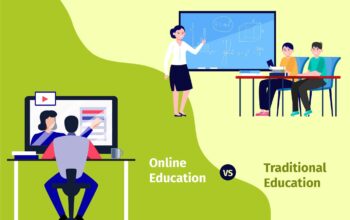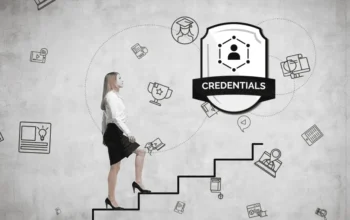Education is often seen as something that happens within the confines of a classroom, typically spanning from early childhood through to university. However, in today’s rapidly changing world, this view is increasingly being challenged. Lifelong learning is emerging as a crucial concept, suggesting that education doesn’t end after school or college, but continues throughout one’s life. In fact, the need for continuous learning has never been greater, as new technologies, shifting job markets, and evolving global challenges demand constant adaptation. This article explores the importance of lifelong learning and why education is an ongoing journey, not a finite chapter.
Adapting to Technological Change
One of the most significant reasons for embracing lifelong learning is the pace of technological advancement. The digital revolution has transformed nearly every aspect of modern life, from how we communicate to how we work. As technologies evolve, new tools and systems emerge, requiring individuals to acquire new skills to stay competitive in the job market. For example, industries like artificial intelligence, data analysis, and renewable energy are growing at an unprecedented rate, creating a demand for workers with specialized knowledge and expertise.
Lifelong learning enables individuals to keep up with these developments by allowing them to learn new skills, enhance existing ones, and stay relevant in their careers. Many professionals now engage in ongoing education, such as online courses, certifications, or workshops, to keep their skills up-to-date and respond to changes in their field. This approach ensures that individuals are not left behind as technology continues to reshape industries.
Personal Growth and Fulfillment
Beyond professional development, lifelong learning also contributes to personal growth and fulfillment. Education fosters intellectual curiosity, critical thinking, and problem-solving abilities—skills that extend far beyond the classroom. As people age and gain more life experience, the desire to explore new subjects and pursue hobbies often grows. Lifelong learning allows individuals to explore their interests, whether it’s learning a new language, studying philosophy, or mastering an instrument.
This continual pursuit of knowledge can provide a sense of purpose and achievement, keeping the mind engaged and active. Moreover, learning new things throughout life helps to build confidence and self-esteem. For older adults, in particular, engaging in learning activities can contribute to mental sharpness, reducing the risk of cognitive decline and promoting overall well-being.
Changing Career Landscapes
In today’s world, the traditional notion of a “job for life” is increasingly rare. Job markets are evolving, with industries emerging, disappearing, and shifting in ways that require workers to be adaptable. According to studies, many people will change careers multiple times, making it essential to continuously develop new skills and knowledge to pivot successfully between roles.
Lifelong learning helps individuals remain flexible and ready for new career opportunities. It provides the necessary tools to reinvent oneself, gain expertise in new fields, and stay competitive even as job markets fluctuate. For instance, someone who started as a teacher may transition to become a business consultant or a software developer by pursuing relevant courses and certifications. In such cases, ongoing education is a powerful tool for career growth and reinvention.
Fostering a Growth Mindset
Embracing lifelong learning also nurtures a “growth mindset,” a concept popularized by psychologist Carol Dweck. A growth mindset is the belief that abilities and intelligence can be developed through dedication and effort. People with a growth mindset are more likely to embrace challenges, persist in the face of setbacks, and see failures as opportunities to learn and grow.
Lifelong learning encourages this mindset by demonstrating that learning is not limited to school years but is a continuous process that can happen at any stage of life. This perspective fosters resilience, a positive attitude toward change, and a willingness to take on new challenges—key traits that are valuable in personal development and professional success.
The Role of Technology in Lifelong Learning
In the digital age, technology plays a central role in making lifelong learning more accessible. Online platforms, such as Coursera, edX, and Udemy, offer many courses on various topics, often at little or no cost. These platforms make it easy for individuals to access high-quality educational resources from the comfort of their own homes, allowing them to learn at their own pace.
Social media and online communities also play a role in lifelong learning. Online forums, discussion groups, and virtual study sessions provide collaboration, networking, and knowledge exchange opportunities. The internet has made learning more flexible and inclusive, allowing people of all ages and backgrounds to learn, grow, and expand their horizons.
Conclusion
In conclusion, lifelong learning is not just a buzzword but an essential mindset for success and personal development in the modern world. Education doesn’t end after school—it is a lifelong journey that helps individuals adapt to new technologies, foster personal growth, navigate career changes, and develop a growth mindset. By embracing lifelong learning, individuals can continuously enhance their skills, explore new opportunities, and maintain a sense of curiosity and purpose. Whether through formal education, online courses, or self-directed study, learning should be viewed as a lifelong pursuit, enriching our lives and keeping us engaged with the world around us.




